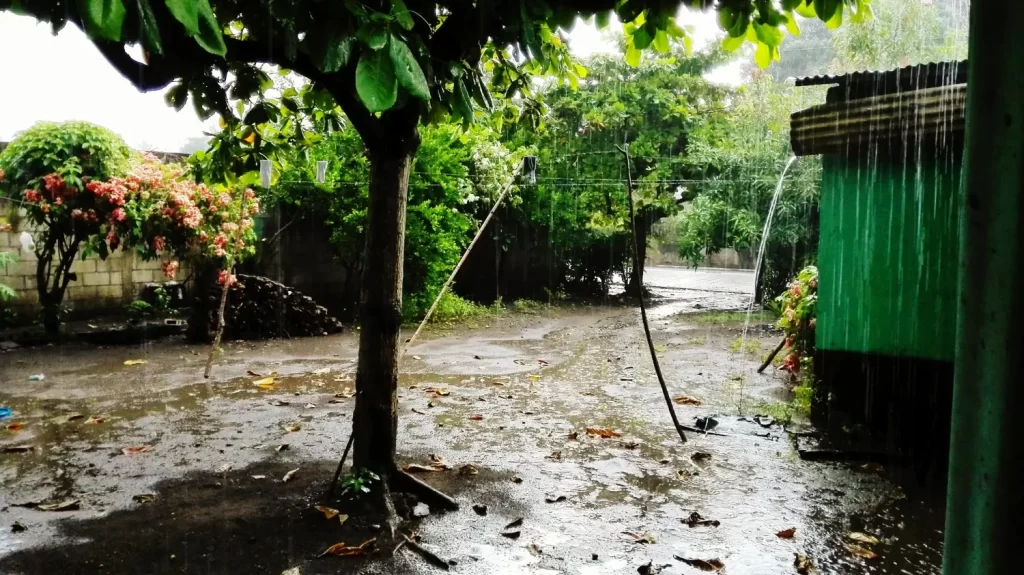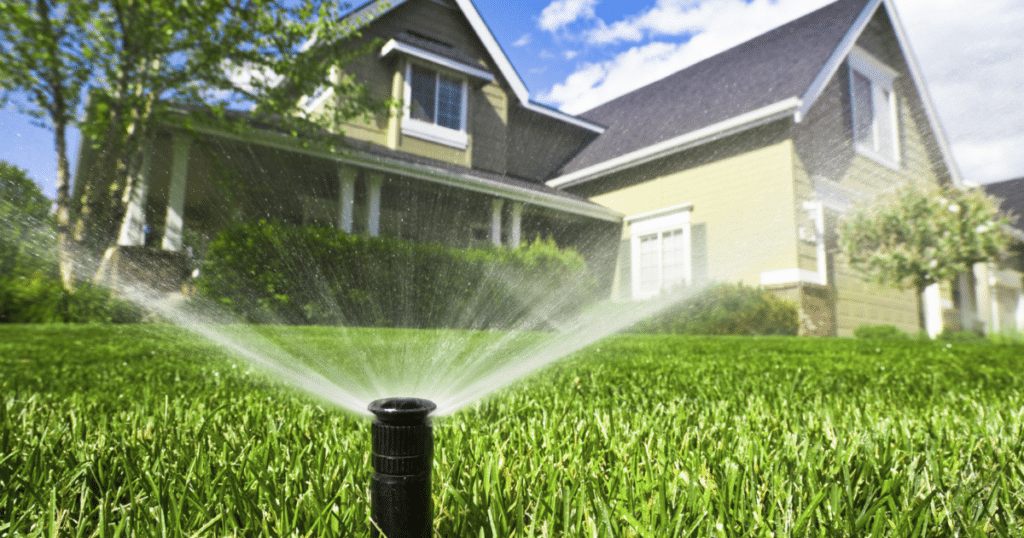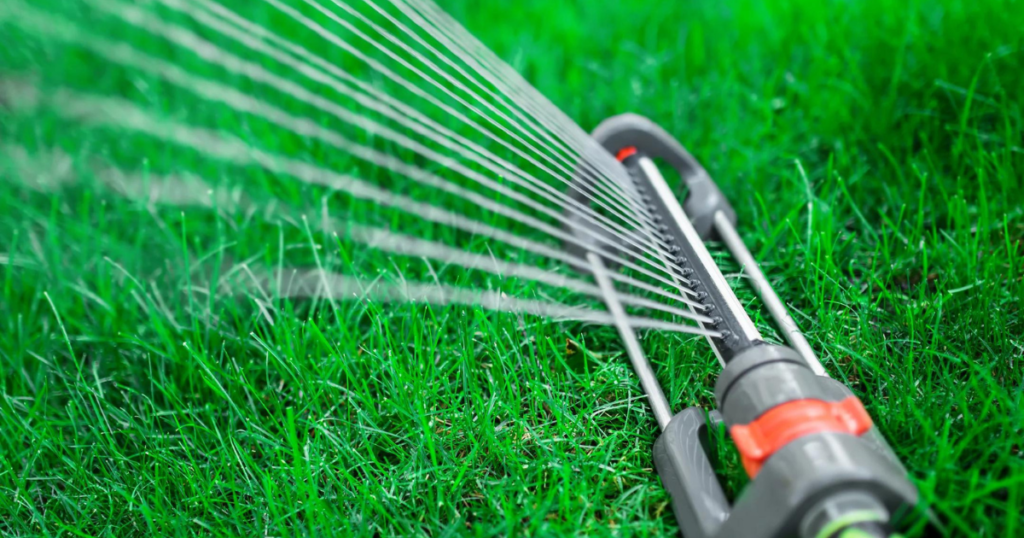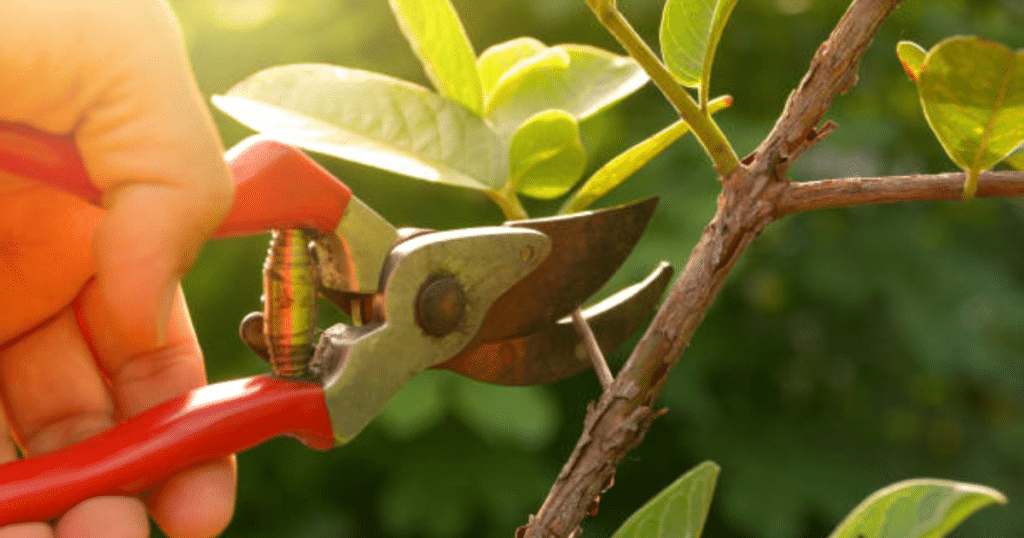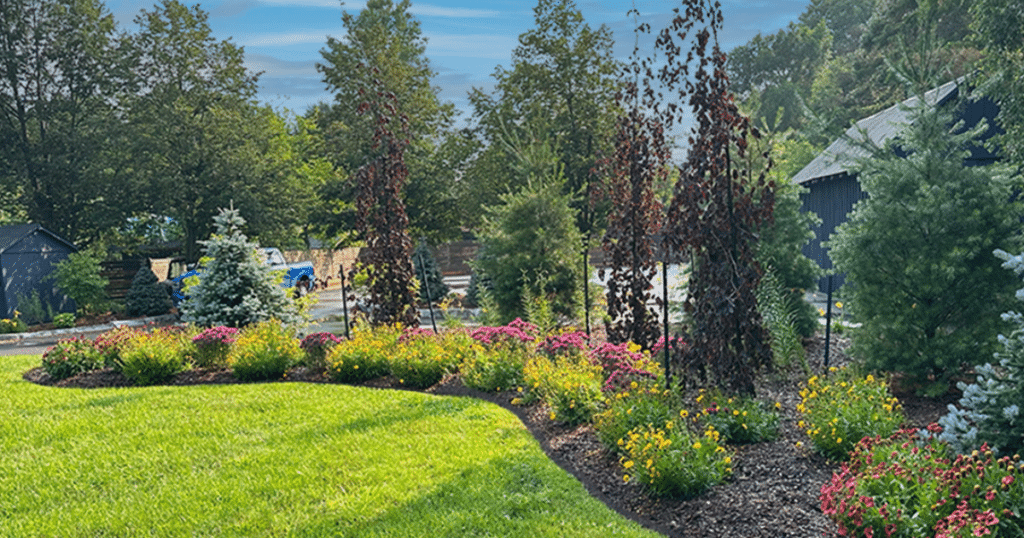Whether you are getting ready for fall or doing a spring clean up, planning when to fertilize your lawn is crucial. It ensures your lawn has all the nutrients it needs to grow. If you apply fertilizer at the wrong time, your lawn may not thrive since it will have missed its growing seasons.
In fact, fertilizing too often can even kill your grass, leaving behind weeds. Therefore, you need to follow the schedule provided below whenever you fertilizer your Canadian lawn.
In this blog, we will explain how often to fertilize a lawn depending on the type of grass and the season.
What Is Fertilizer?
Fertilizer is a mixture of substances that contain the nutrients and minerals your plants need to grow. They can differ in composition to better suit a particular plant and climate. In general, you will find the following 3 elements in your chemical fertilizer:
- Nitrogen (N)
- Phosphate (P)
- Potassium (K)
On fertilizer bags, you may see NPK and a ratio in the following format: X-X-X. This information indicates the ratio of the primary nutrients. Since you can buy chemical fertilizer that best suits your type of grass and climate, it can be more effective than only using natural fertilizers such as manure.
Note: According to reports, if you misuse fertilizer, you might damage your grass, kill microorganisms, and contaminate the soil and underground waterways.
How Often Can I Fertilize My Lawn?
In general, you should only fertilize your lawn 5 – 3 times a year with at least 6 weeks in between. If your grass is a cool-season grass, you can fertilize it 5 times: Twice in the summer, once in the spring, autumn and winter. Warm-season grass only needs fertilizing in spring and summer – in autumn it is optional.
The following table helps you to schedule your fertilizing:
| Time | Cold Climate Grass | Warm Climate Grass |
|---|---|---|
| April 15 – 30 | If Necessary | Yes |
| June 1 – 15 | Only if None in Spring | No |
| July 15 – 30 | Only if None in September | If Necessary |
| September 1 – 15 | Yes | If Necessary |
| November | Yes | No |
Top Benefits of Using Fertilizer at the Right Time
How often lawn fertilizer is applied affects the growth of your grass in multiple ways. In fact, it also has an effect on the other living things that grow or feed from your lawn.
The following are the best benefits of applying fertilizing at the right time:
Ensures Balanced Growth
To start with, using fertilizer at the right time ensures your grass grows in a balanced way. This is because the fertilizer supplements the soil with the nutrients your grass needs at that specific time. Without fertilizer, your grass may have access to only some of the necessary nutrients, leading to lopsided growth such as healthy leaves yet weak and short roots.
Eliminates Risk of Fertilizer Burn
When you use fertilizer at the right time, you are less likely to ‘burn’ the roots of your grass. This usually happens when you apply too much fertilizer or the wrong kind of fertilizer.
Yet when you follow a fertilizing schedule, you space out your fertilizer application sessions. This gives the plants time to absorb the nutrients before you apply more fertilizer.
Lowers Risk of Disease
Fertilizer can help your grass become resistant to diseases. If your grass has a disease, ask yourself: How often do you fertilize your lawn? If it is less than three times a year, then it might be that your grass does not have the necessary nutrients to resist diseases and heal after mowing.
Prevents Weed Growth
Lastly, another benefit of using fertilizer at the right time is that it prevents weed growth. This is because your grass has all the nutrients to thrive in your lawn. If it lacked some nutrients, then weeds would be able to take the opportunity and grow in the place of your grass. Plus, even if weeds can use the nutrients in fertilizers to grow, the manufacturer has calibrated it to your type of grass and climate.
Best Tips to Fertilize Your Lawn
Apart from how often you should fertilize your lawn, there are other factors you will need to consider to have a healthy yard. Therefore, you should use the following tricks to fertilize your lawn:
- Do not over fertilize: Every time you fertilize you should use the manufacturer’s instructions to apply the fertilizer. Using more fertilizer can damage your grass.
- Test Your Soil: Before you select a fertilizer, you should test your soil to know what nutrients it already has.
- Measure Your Lawn: To know how much fertilizer you will need, you should measure the area of your lawn. Then, you will be sure that you have enough fertilizer for all of your grass.
- Find the Right Fertilizer for Ontario: Most of Ontario soil is already rich in phosphate. Therefore, your fertilizer’s NPK ratio should be 25-0-5. In the spring, you can use 32-0-6.
- Water your lawn: After you have applied the fertilizer, you should water your lawn properly.
Looking for the Best Lawn Fertilizer Services in Ontario?
Applying fertilizer requires the right tools and knowledge that comes from years of experience to avoid any mishap. This is why Paramount Landscaping experts care for your lawn. Whether you have personal or commercial property, our experts know how often to fertilize lawns and with which ratios for the most outstanding results. In fact, you can even review our portfolio and be the judge.
Conclusion
Now you know how often to fertilize your lawn: 5 – 3 times a year. You should fertilize your lawn each season, although if you have warm-climate grass, you can skip fertilizing in winter. In Ontario, you should use 32-0-6 fertilizer twice in the spring and 25-0-5 in the rest of the seasons.
To avoid fertilizer burn and other issues from improperly using fertilizer, you can rely on professionals such as Paramount Landscaping. Our experts will test your soil to ensure we use the right fertilizer in the right quantities.
Let us care for your lawn and make it healthy and green from spring to fall!
Frequently Asked Questions
Do you need to fertilize every year?
You do not need to fertilize every year since it depends on your land use, supplements, and type of plant you are growing. If you do not rotate your plants and do not use supplements such as manure, you will need fertilizers every year, multiple times a year.
How do I take care of my lawn in Canada?
To care for your lawn in Canada, you will need to cut it and water it regularly. You will need to cut it to 2.5” to 3” to promote growth and deter weeds. Meanwhile, the water should not be excessive since that can damage the roots of your grass.
Is it better to fertilize a lawn before or after mowing?
It is best to fertilize after mowing and raking. This is because mowing clears the area above the grass. Therefore, the fertilizer can more easily penetrate the soil.






